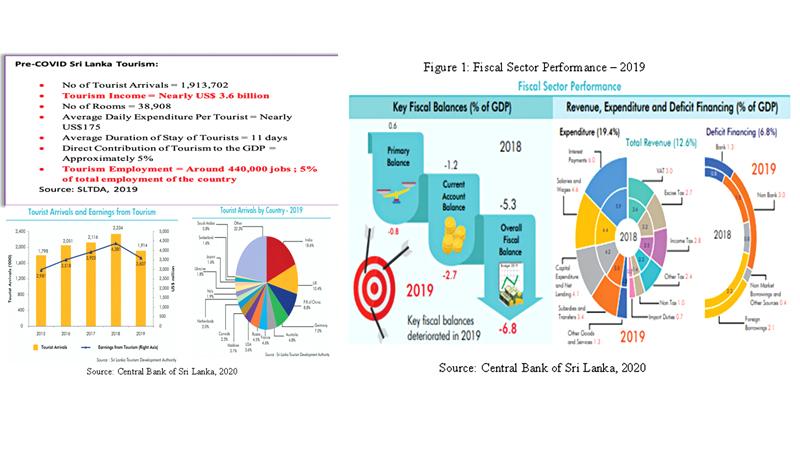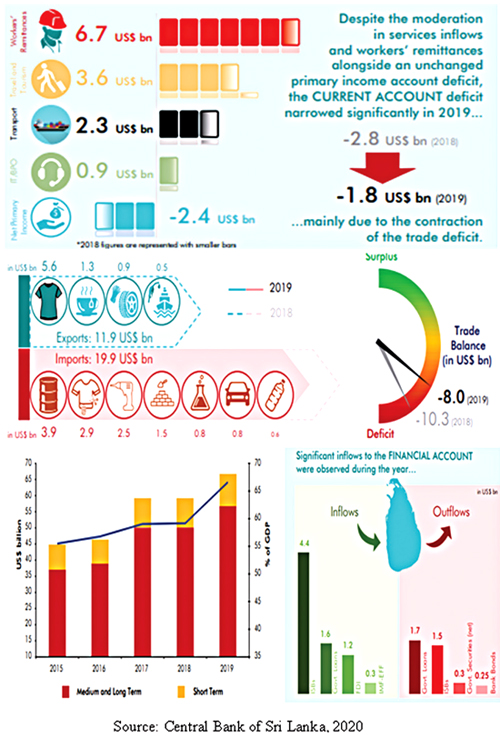
Sri Lankan tourism is a key contributor to the country’s economy. Over the past few years, it’s been threatened and challenged by extreme situations such as the battle against terrorism and the Easter Sunday attack. At present, the long-term effects of the Covid-19 pandemic have endangered Sri Lankan tourism.
 The side effects of the pandemic hit the local economy on a massive scale and It has impacted tourism in an extremely disastrous way. The Founding Coordinator of the Master in Tourism Economics and Hotel Management, University of Colombo and Secretary General to the Tourism and Hospitality Educators and Researchers Association of Asia (THERAA), Prof. D. A. C .Suranga Silva spoke to the Sunday Observer on promoting safe and sustainable tourism in Sri Lanka.
The side effects of the pandemic hit the local economy on a massive scale and It has impacted tourism in an extremely disastrous way. The Founding Coordinator of the Master in Tourism Economics and Hotel Management, University of Colombo and Secretary General to the Tourism and Hospitality Educators and Researchers Association of Asia (THERAA), Prof. D. A. C .Suranga Silva spoke to the Sunday Observer on promoting safe and sustainable tourism in Sri Lanka.
Prof. Suranga Silva said that , “Tourism is the third largest foreign exchange earner for the country. This field has opened up direct and indirect employment opportunities by facilitating inflow of foreign direct investments to the country. The post- battle against terrorism era that started in mid-2009 resulted in an all-time high tourism revenue of USD 4.38 billion in 2018. Unfortunately, the Easter Sunday attacks of April 2019 caused an immediate reduction of its revenue to USD 3.61 billion in 2019”
Why do we need to get tourism back on track?
Currently, the entire economy of the country is going through a tough time. If we refer to the National Accounts on the growth of the tourism sector from 2018 to 2020, the growth of the Value Added of Accommodation and Food Service was 5.7 percent and 4.6 percent,Tourist Arrivals 10.3 percent (2.3 Mn) - 18.6 percent (1.9 Mn) 0.57mn Tourism Earnings 11.6 percent (4.3 US$ Bn) - 17.7 percent (3.6 US$ Bn) 0.95 USD Bn, and Room Occupancy 72.8 percent 57.1 percent and 52.02 percent.

Despite the recovery we were gaining after the Easter Sunday attacks, the Covid-19 pandemic aggravated even more hardships in the tourism sector with 450, 000 people who were surviving by the jobs created directly and indirectly by tourism losing them.
As a result, 1.4 million people were affected. This is why we need to take immediate steps to eradicate unemployment and take control of the country’s economy by re-establishing Sri Lankan Tourism”, he said.
“As a result of the accumulated negative effect of the economic stagnation the maturity has reached to the top of most of the loans, mostly sovereign bonds taken to pay for day-to-day expenses. Currently, we are going through US$ 72 billion of public debt, equivalent to 86 percent of the GDP (Gross Domestic Product) of which US$ 35 billion were external loans in 2019. Plus, Sri Lanka has to pay US$ 4.8 billion as External Debt Service Payments for this year, the highest debt repayment in the country’s history.
Despite the looming debt crisis, the tax cuts reduced government revenue by nearly two percent of the GDP. The Total Debt Service/Government Expenditure is equivalent to 50.1 percent and Foreign Debt Service/Exports is at 23.7 percent. The Central Bank had to revise the economic growth in 2019 from an earlier four percent to 1.5 percent. The growth rate of the Sri Lankan economy declined from 5.6 percent to two percent and has resulted in insignificant FDI (Foreign Direct Inflows) he added.
A way forward for resilient and recovered Sri Lanka Tourism
According to him, Sri Lanka encountered numerous crises during the past decades, which disrupted the growth flow of the tourism industry. Despite such challenges, the industry could manage to obtain a certain satisfactory achievement. Therefore, Sri Lanka is expected to regain back the growth track again in the near future by reshaping its tourism products and services under the new normal scenario. Since the entire world has encountered the negative economic impacts of the Covid-19 pandemic, tourism business development strategies will likely to be changed in the post-Covid pandemic period.
“There are key strategic aspects which are fundamental for the recovery and resilience of Sri Lankan Tourism against the Impact of the Covid-19 pandemic. It is mandatory to have a deep understanding of the gravity and density of the Covid pandemic impact on the industry. Therefore, regular monitoring, system correcting and dashboarding is necessary.
Integrated and coordinated efforts, transparent and simplified processes, inclusion of all affected sectors and people in the recovery process, compensating all kinds of loss of revenues/incomes by using the most possible least cost methods to the country, initiating an effective tourism crisis management system, application of sustainability practices, standards and new technologies, diversification of tourism products for new and emerging market opportunities, promotion of local resource-based tourism activities, creation of new marketing and promotional strategies, application of sustainability standards and practices, establishing value-added tourism and fair distribution of tourism benefits, strengthening of core competencies and competitive advantages, building private-public and people partnership, introducing of new models for financial requirements and re-strategising human resource development activities, ensuring a fair distribution of tourism income, encouraging green and responsible tourism activities, empowering the small scale sector and providing the necessary training for the human resource sector are important,” he said.
What is the responsibly of Sri Lankan citizens in securing the Tourism Industry?
The hazardous nature of the pandemic, severely damaged the backward and forward linkages of the tourism industry. To prevent further damage to the industry; the government has taken steps by developing the concept of Tourism for All by enacting People-Centric Strategy Development. The Government has initiated doing the right thing, and the community should in return support the government to do the thing right. The communities in the countries such as Vietnam, Laos, Cambodia, New Zealand, Mongolia, Bhutan, immensely supported the Government to minimise the spreading of the virus to secure the country’s economy. So, it is vital and mandatory every Sri Lankan citizen follow operational and safety protocols and guidelines in a responsible manner.
